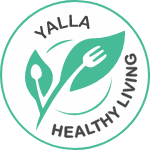Did you know you can be plant based and still eat meat?
Plant-based living is becoming increasingly popular as we learn the benefits of eating more plants and less animal meat (especially red meat) for both the environment and our health.
And while plant-based doesn’t necessarily mean vegan—where you don’t eat any animal products, eggs, or dairy—plant-based has more flexibility, making it a good approach for those who simply want to have more meatless Mondays.
“A plant-based diet is one that is mostly plants; it includes vegan and vegetarian diets, but for some people even means occasionally including small portions of meat,” says Kelly Jones, MS, RD, CSSD, LDN. “Plant-based diets are all much lower in animal product intake than a standard American diet, while also being richer in whole plant foods,” she explains.
Because of the flexibility of plant based, it’s great for anyone who desires to eventually transition to a vegan diet, as well as those who don’t ever intend to go vegan.
Here are a few surprising facts about starting a plant-based diet, as well as how to make the transition a tad easier.
1. You Don’t Have To Quit Meat Cold Turkey
“If you include meat in your diet often, it isn’t wise to immediately attempt a vegan eating pattern due to risk of nutrient deficiency, as well as poorly balanced meals impacting your appetite and eating pattern,” says Jones.
“You can start by altering the percent of your meals that contain meat or by removing specific animal products one by one,” she says. If someone is making a change for ethical reasons, the latter may make more sense. “In that case, I recommend removing [only] beef and pork while getting used to some more plant-based proteins,” she suggests.
Once it feels normal and comfortable to opt for veggies over meat, transition away from poultry. Then, determine if you’d also like to eliminate—or reduce—eggs and fish. This is a good way to gauge how you feel with each food group. Let your body tell you what it needs more or less of.
2. You May Feel Fuller After Meals
When choosing more whole plant foods—like cruciferous and leafy greens, beans and legumes, whole grains, and nuts and seeds—in lieu of animal products, you are adding more fiber to your plate. This bulks up your meal to
make you feel fuller for longer, explains Jones.
“It’s likely that you’ll begin feeling more satisfied from meals and snacks due to a higher fiber intake, and this means you may want to set reminders to eat regular snacks between meals so your energy intake doesn’t drop too much,” she adds.
You don’t want to have too low a calorie count when going plant-based (which is actually common as a mistake!). You still want those calories and nutrients, just from plants.
3. You’ll Poop More
If you’re heading to the bathroom more often, don’t be surprised. You may have more regular bowel movements due to higher fiber intake and more fluids, as plant foods like veggies and fruit are high in water content.
“Since plant foods are fluid-rich, you may have more regular bowel movements and less constipation, if that’s something you’ve dealt with,” Jones says. If you’re going too often or your stool is soft and resembles diarrhea, you may be overdoing it on the fiber and might want to cut back a tad or consult with a doctor for some tips.
This is especially common if you’re not used to eating vegetables and fruit often in general, as it’ll be a harsher awakening for your body.
4. You’ll Have More Variety in Colors and Meal Options
When eliminating meat, you may actually find you have more variety in your diet rather than less! There are so many types of fruits, veggies, nuts and seeds, whole grains, and plant proteins (like beans, legumes, and soy) to choose from.
“Switching to plant-based eating may mean trying new foods as well as seeing more colors on your plate,” Jones notes. This can be exciting, especially if you are used to eating chicken as your protein source at most meals. And any chance to snap an Instagram photo of your plating aesthetic is a bonus, right?
5. You May Sleep Better
“Better sleep can also be an early and positive side effect of more plant meals,” says Jones. Those extra zzz’s can also help combat stress and keep the body balanced.
“By having more regular bowel movements, taking in more fluid via food, even regulating blood sugar better due to fiber intake, and having greater antioxidant intake, you’re likely to have lower stress levels result in better sleep,” Jones notes.
6. Meat Substitutes Go Far Beyond Just Burgers
Mushrooms, beans, cauliflower and quinoa are key staples for creating plant-based burgers, “steak,” and other recipes that call for that “meaty” texture and flavor. However, because plant-based is so popular, the market has advanced to create many animal substitutes that are meatless but really close in resemblance to the real thing.
There are vegan animal meat substitutes like Just Egg, which also offers sous vide egg bites and folded egg patties that are great for breakfast sandwiches.
And there’s also faux fish, like Good Catch’s fish-free tuna, which has the same texture and flavor as canned or packaged tuna. They’re coming out with more meatless “shellfish” products, too, as well as fish sticks.
Incorporating these meat substitutes will help make your plant-based transition easier and less jarring to your taste buds.
7. You May be Happier (And Healthier) Long-Term
“In the long-term, it’s common to see improvements in mood due to the consistency of antioxidant and micronutrient intake as well as changes in the gut bacteria that can regulate how you feel,” says Jones. Plus, better gut flora also boosts immunity to keep you well. “For those who have had high blood lipids or blood sugar regulation issues, you may see
improvements in your blood work as well as blood pressure,” she adds.
8. You’re Helping the Environment
Plant agriculture tends to not only release less methane, but also use less water than animal agriculture. “You’ll also help divert plants that would be used for animal consumption directly to human consumption, potentially reducing food production needs long-term,” says Jones.
Large animal farms, called concentrated animal feeding operations (CAFOs), can sometimes lead to bacterial runoff and contamination of water systems. So, you’ll be reducing such effects by eating more plants over meat.
Original Article by: Isadora Baum, CookingLight










